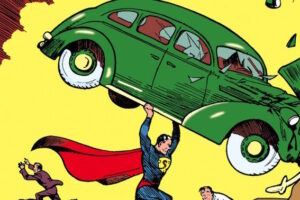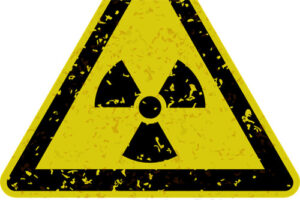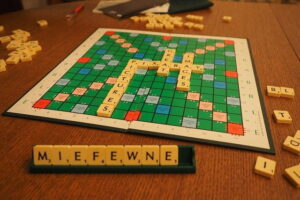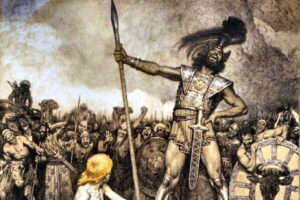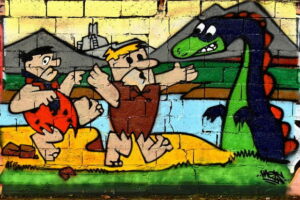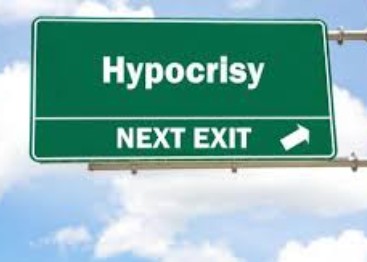10 Video Game Controversies That Sparked Global Debates
The world of video games is a treasure trove of creativity, innovation, and, let’s be honest, a fair share of drama. While gaming often makes headlines for groundbreaking releases or record-breaking sales, it’s also no stranger to controversy. Whether it’s a polarizing game, a questionable decision by developers, or a scandal involving the people behind the scenes, the gaming industry has seen its share of moments that sparked heated debates and grabbed attention—just not always for the right reasons.
In this list, we’re diving into some of the most fascinating (and sometimes infamous) examples of when the gaming world found itself in the spotlight for all the wrong reasons. From PR disasters to ethical dilemmas, these stories reveal the messy, complicated, and often surprising side of an industry that’s as much about people as it is about pixels.
10.The Last of Us Part II Leaks
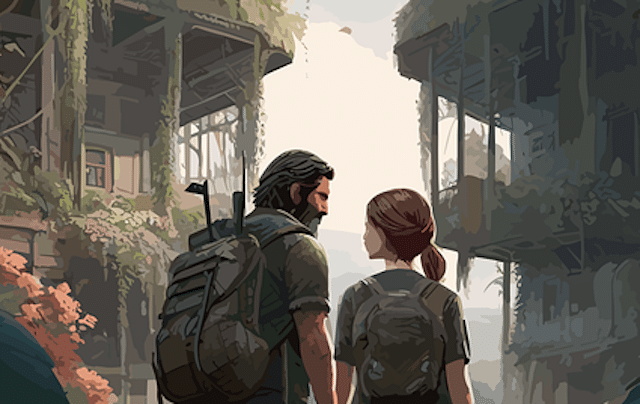
Let’s be real: just mentioning The Last of Us Part II is enough to set the internet on fire. Whether you’re a die-hard fan or a vocal critic, the sequel to Neil Druckmann and Naughty Dog’s 2013 masterpiece, The Last of Us, remains one of the most divisive games in recent memory. And honestly, the drama surrounding its release didn’t help.
Just two months before the game officially launched in June 2020, leaks hit the internet like a bombshell. On April 27, an anonymous leaker dropped over an hour of gameplay footage and cutscenes, spoiling some of the game’s biggest moments. Among the revelations? The shift to a secondary protagonist, Abby, halfway through the story—and the shocking death of Joel, the beloved protagonist from the first game. Cue the outrage. Fans took to forums, social media, and comment sections to voice their frustration, with many criticizing Naughty Dog’s creative decisions.
Despite the studio’s efforts to control the fallout, the leaks cast a long shadow over the game’s launch. Yet, against all odds, The Last of Us Part II still managed to impress critics and sell over four million copies in just three days. Love it or hate it, the game’s journey—from leaked spoilers to record-breaking sales—is a wild ride that proves just how passionate (and sometimes volatile) the gaming community can be.
9.The Mass Effect 3 Ending
If you could bottle up the sheer rage directed at BioWare in 2012, you’d have enough energy to power a small nation for centuries. That’s how intense the backlash was when Mass Effect 3 dropped—and it all came down to one thing: the ending. Let’s rewind a bit. The Mass Effect series had built a massive following thanks to its “choose your own adventure” style of storytelling. Players could customize Commander Shepard’s appearance, shape the narrative through their decisions, and form deep connections with the characters. It was immersive, personal, and downright addictive.
So, when fans finally reached the end of Mass Effect 3 and realized that all those years of choices amounted to… well, almost nothing, the disappointment was palpable. The ending felt rushed, underwhelming, and, frankly, lazy for a franchise as beloved as Mass Effect. Fans took their frustration online, flooding forums and social media with complaints. Some even started petitions demanding BioWare change the ending—a rare level of dedication (or fury, depending on how you look at it).
In response to the uproar, BioWare released the Extended Cut DLC, which added more context and closure to the original ending. While it addressed some of the glaring issues, it still didn’t fully satisfy the fanbase. The Mass Effect 3 ending controversy remains a cautionary tale in gaming history—a reminder of how deeply players care about the stories they invest in, and how high the stakes can be when a beloved series falls short.
8.The False Advertisement of No Man’s Sky
There have been many instances in the video game industry of a highly anticipated project simply not living up to fan’s expectations. A major example of this is No Man’s Sky, released in 2016, and the allegations of false advertisement thrown at it following its launch.
For content, the advertisements of No Man’s Sky very much made it look like a next-level science-fiction game experience. Not only did the marking lead players to believe that the game would be teeming with diverse planets, wildlife, and deep exploration possibilities, as well as multiplayer functionality. Needless to say, players were very excited to play the game and explore every inch of its allegedly lavish and diverse world.
Unfortunately, when people bought the game on its release day, they were met with a game that was a far cry from what was promised. Not only was the promised multiplayer functionality absent, but the planets in the actual game were not as diverse and immersive as initially promised. Hello Games and its founder, Sean Murray, were soon swept up in a tidal wave of backlash and criticism from the gaming community, many of whom felt cheated and lied to. It got to the point where Hello Games needed to publically address the disconnect between the marketing and the disappointing final product.
7.Star Wars Battlefront II Microtransactions
In the world of modern gaming, one of the more frustrating developments has been the genesis of microtransactions within major titles. This refers to a business model where users can purchase in-game virtual goods – such as weapons, skins, and rare items – with micropayments. This means that many players can simply buy their way to a higher level in a certain game without progressing via their skill.
Nowhere was the inclusion of this aggravating trend more prevalent than when it came to Star Wars Battlefront II, published by Electronic Arts (EA). The game was heavily predicated on a loot box system, which effectively hinged the gameplay on a pay-to-win-based mechanic. When beta players realized that buying these loot boxes was integral to progressing in the game, it wasn’t too long before the backlash began. EA even found themselves under investigation by the likes of Belgium and the Netherlands as to whether the loot box mechanic constituted a form of illegal gambling.
Eventually, EA was forced to temporarily remove microtransactions from Battlefront just before its official release. They later reintroduced a revised gameplay system wherein the loot boxes were only for cosmetic upgrades. The whole debacle served as a harsh reminder that the modern consumer, especially in gaming, won’t blindly accept predatory microtransactions in their AAA titles.
6.The Cyberpunk 2077 Launch
After the massive success of The Witcher series, gamers were buzzing with excitement for whatever CD Projekt Red had up their sleeves next. So, when the studio announced they were working on Cyberpunk 2077, an adaptation of Mike Pondsmith’s iconic tabletop RPG, the hype train left the station at full speed. Fans couldn’t wait to dive into the neon-lit, futuristic world of Night City.
But as the years rolled by, the wait grew longer. Originally announced in the early 2010s, Cyberpunk 2077 faced multiple delays before finally launching in late 2020. And when it did? Well, let’s just say it wasn’t the smooth ride players were hoping for. Console gamers, especially those on PlayStation 4 and Xbox One, were hit with a tidal wave of technical issues. Crashes, painfully low frame rates, and bizarre graphical glitches made the game nearly unplayable for many. On top of that, players were let down by the lack of deep customization, shallow NPC interactions, and an open world that felt unfinished.
This was a far cry from the breathtaking, fast-paced experience CD Projekt Red had promised. Instead of a polished masterpiece, players got a game that felt as unstable as a Jenga tower in an earthquake. The backlash was swift and brutal. Critics slammed the studio for releasing a game that clearly wasn’t ready, and the company’s stock price took a nosedive. In an unprecedented move, CD Projekt Red even offered refunds to unhappy players.
Cyberpunk 2077’s rocky launch serves as a stark reminder that even the most anticipated games can stumble—and that hype, no matter how big, can’t save a game from its flaws.
5.Ubisoft Workplace Misconduct
No industry has been untouched by the Me Too movement which picked up steam in the late 2010s, especially the gaming industry. A major example of this was a major scandal in 2020 surrounding allegations of workplace misconduct within the walls of Ubisoft. Things kicked off when numerous reports began to surface regarding the toxic behavior of several high-profile Ubisoft executives and employees.
Before too long, multiple current and former female employees were coming forward with stories of mistreatment and harassment within the company. The stories ran the gamut of heinous actions, ranging from inappropriate verbal comments and behavior to several instances of assault and systemic sexism. These revelations led to the resignation or dismissal of several key figures within Ubisoft, including the chief creative officer, Serge Hascoët. Another key figure who found himself out of a job was the managing director of Ubisoft’s Canadian studios, Yannis Mallat.
Many current and former employees, publically expressed disappointment and ample frustration with Ubisoft’s lack of accountability and transparency. Following this, Ubisoft opted to launch internal investigations, as well as implement changes to foster a safer environment and a more respectful workplace culture. The whole incident stands as a harsh reminder of how grimy the gaming industry can be and what needs to be done to improve it.
4.Rockstar’s Infamous “Hot Coffee” Mod
When it comes to controversies within the gaming world, you can always count on the Grand Theft Auto franchise to provide more than a few. The irreverent and hyper-violent crime-based action-adventure games have always had a knack for making it into mainstream news headlines. Whenever there’s a discussion about violence in video games corrupting the youth, GTA has more often than not been a poster child for that claim.
However, the most noteworthy scandal revolving around the franchise came in the form of a minigame found in Grand Theft Auto: San Andreas. In 2005, following its release, players who dug into the programming made a rather raunchy discovery, a hidden minigame buried in the game’s code. The game, now referred to as Hot Coffee, allowed the player to control the main character, CJ, as he engaged in aggressive sex acts with various women. The name itself is derived from CJ’s girlfriends asking him “Do you want to come inside for some coffee?” before the minigame starts.
While some fans might’ve been entertained by this discovery, it wasn’t too long before Hot Coffee was a source of major controversy. Rockstar Games and, their parent company, Take-Two Interactive were hit with a slew of lawsuits and fines, including a settlement with the Federal Trade Commission.
3.Blizzard’s Hong Kong Controversy

To understand the 2019 Blizzard Hong Kong Controversy, we must first quickly explain the game Hearthstone, one of the company’s flagship titles. Hearthstone is a free-to-play digital collectible card game where players build decks composed of different creatures, spells, and abilities from the Warcraft universe. The game became so popular that many skilled players have gone pro, even showcasing their prowess on highly touted tournament livestreams.
This leads us to the aforementioned controversy that began when a professional Hearthstone player, Chung “Blitzchung” Ng Wai, used said platform to signal-boost the Hong Kong protests. Blitzchung opted to wear a gas mask, a symbol of the then-ongoing protests, and shout a slogan calling for Hong Kong’s liberation during a post-match interview. This resulted in Blizzard banning Blitzchung from competitive play for a full year and revoking his prize money.
This decision kicked off an influx of outrage from fans, fellow pro players, and human rights organizations around the world. Many were incensed that Blizzard would punish a player so harshly, simply to appease the often stringent Chinese government. Blizzard soon had fans boycotting all of their game titles, as well as their employees staging walkouts and protests within their offices. Eventually, Blizzard relented and reversed the ban they’d placed on Blitzchng, even returning his prize money as well.
2.Bethesda’s Fallout 76 Launch
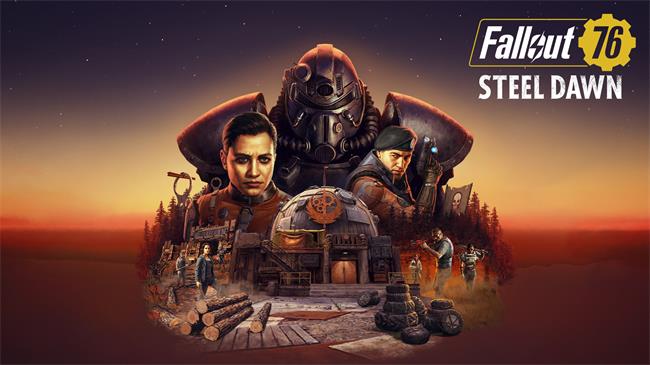
It’s a bit hard to properly summarize just how passionate Fallout fans are about the still-ongoing post-apocalyptic game series. From its retrofuturistic style to its extremely immersive gameplay, when there is some new brewing in the Fallout universe people’s expectations are usually pretty high. So, when Fallout 76 was announced, especially following the success of Fallout 4, the anticipation train was right on track.
So, when the game finally arrived in November 2018, you can imagine fans’ disappointment when they discovered the subpar quality of the released game. While bugs on a game’s initial launch day are to be expected, players dealt with a staggering amount of bugs, glitches, and performance issues that hindered gameplay. These issues included server instability, frequent crashes, graphics issues, and even side-missions that were broken or just flat-out unfinishable. Additionally, the game itself was just devoid of any real substance, especially compared to prior Fallout games, lacking meaningful quests, NPCs, or storylines.
In response, Bethesda, the game’s publisher, had no choice but to issue an apology, as well as address the technical issues with a series of patches and updates. Regardless of where the Fallout series goes next, this entry will likely always be regarded as its lowest point.
1.GamerGate

No matter how much people try to avoid it, GameGate remains one of the most controversial and painful chapters in gaming history. Even years later, the fallout from this online movement continues to spark debates and discussions. At its core, GameGate was a wave of targeted harassment and abuse aimed primarily at women in the gaming industry—developers, journalists, and players alike. It exposed some of the ugliest sides of gaming culture, and its effects are still felt today.
The spark that ignited GameGate was a rumor about Zoe Quinn, an indie game developer. False allegations claimed she had a romantic relationship with a gaming journalist in exchange for positive coverage of her game. Despite little evidence to support these claims, the rumor spread like wildfire, and Quinn became the target of relentless online attacks. From there, the situation spiraled out of control. Other prominent figures in gaming, like Anita Sarkeesian and Brianna Wu, found themselves in the crosshairs of harassment campaigns. The abuse wasn’t just limited to hateful comments—it escalated to threats of violence, doxxing (publishing private information), and other forms of intimidation.
GameGate didn’t just highlight the toxicity of online communities; it also brought to light deeper issues within gaming culture, such as sexism, racism, and homophobia. Even now, the gaming world is still grappling with the aftermath of GameGate, trying to learn from it and create a more inclusive and respectful environment. It’s a stark reminder that while gaming can be a source of joy and connection, it also has a long way to go in addressing its darker sides.



